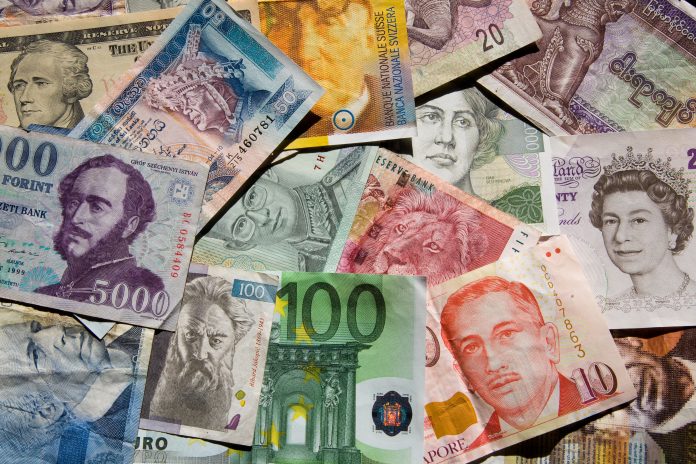Here, we take a look at the financial priorities for France, including comment on a modernised European competition policy and the development of sustainable finance
In July 2019, France, Germany and Poland proposed a modernised European competition policy. A meeting in Poland with the Ministers of Economy of Poland, Germany and France highlighted the importance of an industrial policy ambitions for the European Union (EU). At this meeting, the three ministers of these countries presented a joint proposal that concerns modernising European competition policy and adapting it to the increasing digitisation of the economy and global competition financial priorities.
This follows on from France and Germany jointly publishing a Manifesto for a European Policy on European industrial development adapted to the 21st century, back in February 2019. On this occasion, Bruno Le Maire stated his thoughts on a modernised European competition policy:
“We know full well how much France and Europe owe to competition and to European competition rules. But competition is an ever-moving field. In order to retain their relevance and efficiency, rules must adapt to the new economic realities, in particular to the digital revolution and to the increasing concentration observed in the economies of our main partners. Modernising our competition rules is one of the main challenges that the EU will need to address in the coming months.
“A shared European industrial policy cannot work if we do not have a coherent competition policy and a coherent trade policy.
The times when these policies could evolve in separate ways is are past us. We must think these three policies globally in order to preserve our industry.”1
The development of sustainable finance
In other news, the development of sustainable finance was discussed, in that France will make strong proposals at the European level to develop a high-quality non financial reporting framework. Bruno Le Maire put the development of sustainable finance on the agenda of the meeting of the G7 Finance Ministers in July 2019.
Bruno Le Maire provided detailed comments on the development of sustainable finance:
“After the adoption of the Paris Agreement in 2015 and the One Planet Summit in 2017, this meeting marks a new stage in the mobilisation of the financial centre of Paris in favour of green finance. By announcing that the players on the Paris financial centre will acquire by mid-2020 of a coal strategy and an observatory dedicated to green finance, the place is making a far-reaching, fully collective commitment for the first time.
“The climate commitments will be independently monitored by supervisors. The market players will work on a global timetable for the exit of activity funding emissions from coal.
“This mobilisation must be carried to the international level. At the meeting of the Ministers of the Finance of the G7 of Chantilly, I will invite all my counterparts to work on the reorientation financial flows towards a resilient and low-carbon economy. The President of the Republic will present the progress of finance for climate at the Action Summit United Nations climate change conference next September”. (2)
The financial priorities for France Following on from the above comment, we know that a Meeting of Finance Ministers and Bank Governors took place at the G7 of Chantilly.
Here, four priorities for France during this G7 Finance meeting were underlines:
1. Building taxation for the 21st century
A call by France for a new international tax system adapted to the new economic model created by the revolution of the data economy and secondly, introducing a tax on companies at the international level to tackle evasion and focus on financial priorities.
2. Towards sustainable capitalism
As discussed earlier in the article, the country wishes to develop green finance that vitally supports the huge investments required to ensure a successful ecological transition.
3. Build stable capitalism and better combat speculation risks, cyber-risk and excessive concentrations
Measures to address cyberattacks on the financial sector and the role of (virtual money units) in the financial system, including Facebook’s Libra project, are examined.
4. Building equitable capitalism
This can be, for example, carried out by strengthening transparency on gaps when it comes to improving sustainable financing of investments in developing countries. In particular, there is a desire here to improve the financial inclusion of women in Africa.
A good place to end this article on is precisely on the thoughts of Bruno Le Maire, Minister of the Economy and Finance, who concisely summarises the financial priorities for the country, which includes a call to sustainability.
“France has an ambition for this G7 Finance: rebuilding capitalism. Capitalism as it exists today, the one that rests on resource depletion, increasing inequalities and tax differences between digital companies and other companies, and that revolts our fellow citizens is doomed to ruin.
“We want to rebuild capitalism so that it is more just, more responsible and more sustainable.” 3
References
1. https://minefi.hosting.augure.com/Augure_Minefi/r/ContenuEnLigne/Download?id=4778256E-D2DB-4DC9-B1AD-3CA69A64185E&filename=1328-%20CP%20Proposition%20de%20la%20France%20de%20l%27Allemagne%20et%20de%20la%20Pologne%20pour%20une%20politique%20europ%C3%A9enne%20de%20la%20concurrence%20modernis%C3%A9e.pdf
2. https://minefi.hosting.augure.com/Augure_Minefi/r/ContenuEnLigne/Download?id=64AC3C5F-85CA-409C-8E9E-89AD5619B709&filename=1313%20-%20Une%20nouvelle%20%C3%A9 tape%20pour%20verdir%20le%20syst%C3%A8me%20financier.pdf
3. https://minefi.hosting.augure.com/Augure_Minefi/r/ContenuEnLigne/Download?id=E6076CEB-2173-400C-8826-58C1C37E4541&filename=1344-%20CP%20G7Finance%20%C3%A0%20Chantilly.pdf











